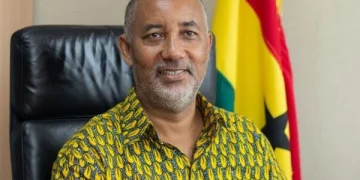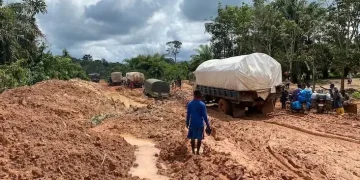The Centre for Biodiversity Conservation Research (CBCR) has called for swift and coordinated action from government and relevant agencies to address the growing menace of flooding across Ghana’s major cities.
Flooding, once an occasional occurrence, has now become a recurring national crisis—bringing widespread destruction to lives, property, and infrastructure each year. Cities such as Accra, Kumasi, Tamale, and Bolgatanga are increasingly paralyzed by heavy rains, as floodwaters submerge roads, homes, and businesses. Beyond the physical damage, the economic toll on affected families remains devastating, leaving many struggling to rebuild their livelihoods.
According to the CBCR, the persistence of the flooding problem is largely due to uncontrolled human activities, weak enforcement of environmental laws, and poor urban planning. The Centre stressed that tackling the crisis requires bold, science-driven interventions and a commitment to sustainable development practices.
Speaking to Kumasimail.com, Mr. Emmanuel N. A. Taye, a Wetland Ecologist and Ornithologist at CBCR, said authorities must take decisive measures to protect both people and ecosystems from the increasing threats of flooding.
He identified rapid and unplanned urbanisation, inadequate drainage systems, and the indiscriminate siting of structures in waterways as major contributors to the problem.
“The expansion of built-up areas is a key factor behind the growing frequency of floods, even in communities that were previously unaffected,” Mr. Taye noted.
He urged government agencies to embark on an extensive nationwide exercise to remove illegal structures along waterways and flood-prone zones, while ensuring that future developments comply strictly with planning and environmental regulations.
Mr. Taye further cautioned that the impact of flooding goes beyond infrastructure damage, as it also undermines food security through the destruction of farmlands, livestock, and supply chains.
He emphasized the need for stronger collaboration among government institutions, researchers, and civil society to develop sustainable, long-term solutions to the problem.
Reaffirming CBCR’s commitment, Mr. Taye said the Centre would continue to support national efforts through research, advocacy, and community engagement aimed at promoting resilient cities and sustainable ecosystems.
Source :www.kumasimail.com


































































